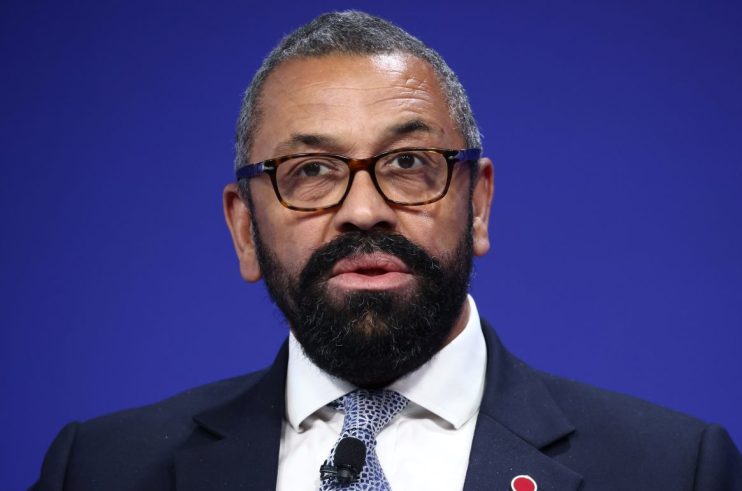Foreign Secretary welcomes safe passage out of Gaza for British citizens

Britain is pressing for a key border crossing to remain open after more UK nationals secured safe passage out of Gaza, according to Foreign Secretary James Cleverly.
Around 100 British citizens were expected to be able to leave Gaza for Egypt on Friday, with the in-laws of Scotland’s First Minister Humza Yousaf among those permitted to leave the territory through the Rafah crossing.
Cleverly welcomed the “positive news” of getting a “number” of British nationals through the crossing, telling broadcasters: “We will continue to work to keep that crossing open, to liaise directly with Israel, with Egypt to ensure that as many British nationals can leave Gaza as possible.”
Around 200 Britons in Gaza have so far registered with the authorities, and along with their dependents the total number the UK is trying to secure passage for is thought to be in the low hundreds.
Aid agencies are battling a humanitarian crisis in Gaza with limited resources, with Israeli Prime Minister Benjamin Netanyahu pushing back against growing US pressure for a “humanitarian pause” in the war to protect civilians and allow more aid into the area.
More than 9,000 people are reported to have been killed in the Gaza Strip since October 7, when Israel launched its military response to the atrocities committed by Hamas.
Large-scale protests have taken place for several consecutive weeks in London, with demonstrators calling for an immediate ceasefire.
Another rally is due to be held for Palestine in Trafalgar Square from around 2.30pm on Saturday.
The Metropolitan Police has said there will be a “sharper focus” on using social media and face recognition to detect criminal behaviour at protests this weekend.
Chief Rabbi Sir Ephraim Mirvis, writing in the Times, said the lines between pro-Palestinian protesters and “those who support the brutal terrorism of Hamas” have become “badly blurred”.
Sir Ephraim highlighted a Manchester protest with a banner showing support for “Palestinian resistance” and said there was no ambiguity in the words used.
He wrote: “Did every person who attended that march truly wish to associate themselves with acts of such barbarity? I sincerely hope that they did not.
“Nevertheless, it could not be clearer that, at the very least, the lines between those who wish only to advocate for the welfare of innocent Palestinians and those who support the brutal terrorism of Hamas have become badly blurred.’
Press Association
